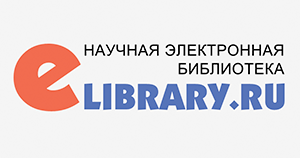Click to go to the English version of the site"
Нажмите на эту строку чтобы перейти к Новостям сайта "Русский врач"
Журнал включен в российские и международные библиотечные и реферативные базы данных
|
РИНЦ (Россия)
RINZ (RUSSIA)
|
Регистрационное агентство DOI (США)
DOI Registration Agency (USA)
|
Эко-Вектор (Россия)
Eco-Vector (Russia)
|
Ulrichsweb (Ulrich’s Periodicals Director
|
The possibilities of using nootropic drugs for cognitive disorders in children in the postcovid period
DOI: https://doi.org/10.29296/25879979-2022-04-01
Issue:
4
Year:
2022
A review of information on the etiology and pathogenesis of cognitive impairment in children who have undergone a new coronavirus infection has been conducted. Research data are presented that have shown that nootropic drugs and metabolic agents with nootropic effect are recommended for the use of choline alfoscerate, deanol aceglumate, aminophenylbutyric acid, hopanthenic acid, glycine, cytoflavin to improve cognitive functions, including in postcovid syndrome.
Keywords:
postcovid syndrome
cognitive impairment
children
nootropics
metabolic agents
References:
- Malkova A.M., Kudryavtsev I.V., Starshinova A.A., Kudlay D.A., Zinchenko Yu.S., Glushkova A., Yablonskiy P., Shoenfeld Ye. Post COVID-19 syndrome in patients with asymptomatic/mild form. Pathogens. 2021; 10(11), 1408.
- Kudlay DA, Shirobokov YE, Gladunova EP, Borodulina EA Diagnosis of COVID-19. Methods and problems of detection of SARS-COV-2 virus in pandemic conditions. Phys. 2020; 31(8): 5–10.
- Zakharov D.V., Buryak Yu.V. Postcovid cognitive disorders. A modern view of the problem, pathogenesis and therapy. Review of Psychiatry and Medical Psychology named after V.M. Bekhterev. 2021; 55(4): 97–105. (in Russian). doi: 10.31363/2313-7053-2021-57-4-97-105
- Miners S., Kehoe P.G., Love S. Cognitive impact of COVID-19: looking beyond the short term. Alzheimers Res Ther. 2020;12(1):170. doi: 10.1186/s13195-020-00744-w
- Guedj E., Million M., Dudouet P, Tissot-Dupont H., Bregeon F., Cammilleri S., Raoult D. (18)F-FDG brain PET hypometabolism in post-SARS-CoV-2 infection: substrate for persistent/delayed disorders? Eur J Nucl Med Mol Imaging. 2021;48(2):592-595. doi: 10.1007/s00259-020-04973-x
- Whiteside D.M., Oleynick V., Holker E., Waldron E.J., Porter J., Kasprzak M. Neurocognitive deficits in severe COVID-19 infection: Case series and proposed model. Clin Neuropsychol. 2021; 1–20. doi: 10.1080/13854046.2021.1874056
- Stracciari A., Bottini G., Guarino M., Siegler J.E., Shekhar R., McCullough L.D., Harkins M.S., Hong E., Alaouieh D.A., Mansueto G., Divani A.A. Cognitive and Behavioral Neurology Study Group of the Italian Neurological Society. Cognitive and behavioral manifestations in SARS-CoV-2 infection: not specific or distinctive features? Neurol Sci. 2021;1-9. doi: 10.1007/s10072-021-05231-0
- Potupchik T., Veselova O., Evert L. Nootropic drugs for disorders of cognitive functions in children. Doctor. 2016;(4):75–78. (in Russian).
- Potupchik TV., Veselova O.F., Evert L.S., Krysenko L.V., Panicheva E.S. Correction of cognitive disorders in children using nootropic drugs. Review of psychiatry and medical psychology named after V.M. Bekhterev. 2015; 3: 109–113. (in Russian).
- Nemkova S.A. Modern principles of treatment of post-infectious asthenic conditions in children. Russian Medical Journal. 2016; 6: 368–372. (in Russian).
- Popov Yu.V. The use of Nooklerin in adolescents as an antiasthenic agent. Psychiatry and psychopharmacotherapy. 2004; 6(4):194-197. (in Russian).
- Zykov V.P., Komarova I.B. The possibility of using aminophenylbutyric acid in the practice of a pediatric neurologist. Russian Medical Journal. 2013; 24: 1166–1168. (in Russian).
- Pisova N.V. What is attention deficit hyperactivity disorderю. Medical advice. 2013; 1: 60–66. (in Russian).
- Lukushkina E.F., Karpovich E.I., Chaban O.D. Aminophenylbutyric acid (Anvifen): clinical and pharmacological aspects and application experience in pediatric neurology. Russian Medical Journal. 2014; 3: 3–6. (in Russian).
- Esin O.R., Khairullin I.K., Esin R.G., Tokareva N.V. Tension type headache: GABAergic drug anvifen efficacy. Journal of Neurology and Psychiatry named after S.S. Korsakov. 2016; 116(2): 58–61. (in Russian).
- Kovalyov G.I., FirstovaYu.Yu., Abaimov D.A., Starikova N.A. Qualitative and quantitative features of the interaction of pantogam and pantogam with the receptors of neurotransmitters in vitro. Journal of Neurology and Psychiatry named after S.S. Korsakov. 2012; 112(3): 39–43. (In Russian).
- Voronina T.A., Litvinova S.A. Pharmacological effects and clinical application of pantogam and pantogam active. Journal of Neurology and Psychiatry named after S.S. Korsakov. 2017; 117(8): 132–139. (In Russian). doi.org/10.17116/jnevro201711781132-139
- Skripchenko N.V., Egorova E.S. Cytoflavin in the complex treatment of neuroinfections in children. Journal of Neurology and Psychiatry named after S.S. Korsakov. 2011; 111(9): 28–31. (In Russian).
- Lavrik S.Yu., Shprach V.V., Domitrak S.V., Borisov A.S. The use of cytoflavin in preschool and early school age children with the consequences of perinatal hypoxic lesions of the central nervous system. Journal of Neurology and Psychiatry named after S.S. Korsakov. 2016; 116(10): 34–37. doi: 10.17116/jnevro201611610134-37. (In Russian).
- Potupchik T.V., Evert L.S., Veselova O.F., Narcissov Ya.R. Prevention and correction of violations of adaptive processes in children. A nurse. 2016; 3: 54–55. (In Russian).
- Neudecker C., Mewes N., Reimers А., Woll А. Exercise Interventions in Children and Adolescents With ADHD. A Systematic Review. J Atten Disord 2019;23(4):307-324. doi: 10.1177/1087054715584053




